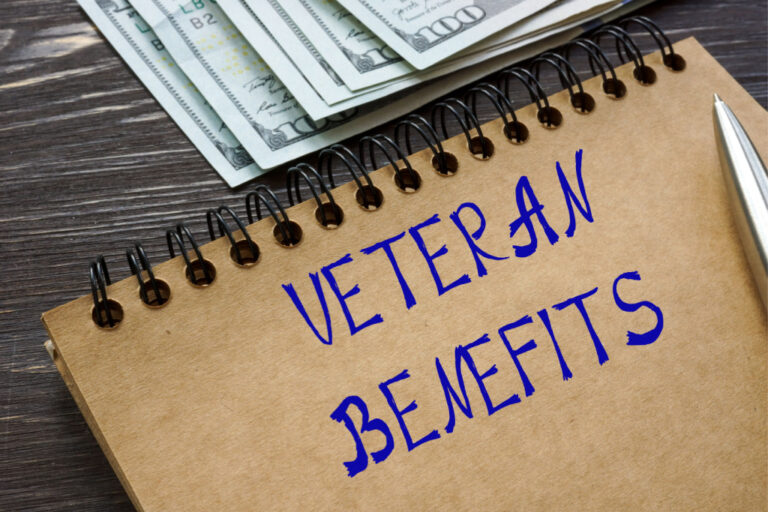How to Get Permanent and Total VA Disability
For veterans facing severe service-connected disabilities, Permanent and Total (P&T) disability benefits from the Department of Veterans Affairs (VA) can be life-changing.
A P&T rating signifies a 100% disability with a high likelihood of remaining unchanged, offering crucial financial security and healthcare access. However, navigating the VA claims process can be complex, and seeking legal assistance can significantly improve your chances of success. This guide explores the path to P&T VA disability and the valuable role veterans’ rights law firms play in this journey.

Understanding P&T Eligibility
There are two primary ways to qualify for P&T status:
- Scheduler Rating: The VA assigns disability ratings based on a predefined schedule linked to the severity of your condition. To be eligible for P&T through the scheduler, you must have:
- A single service-connected disability rated at 100% or,
- A combined disability rating of 100% from multiple service-connected disabilities.
- Individual Unemployability (TDIU): Even if your combined disability rating falls below 100%, you may qualify for P&T under TDIU if your service-connected disabilities prevent you from securing and maintaining substantially gainful employment.
Building a Strong P&T Claim
Service Connection: The foundation of any VA disability claim rests on establishing a clear connection between your current disability and your military service. This necessitates gathering comprehensive medical evidence demonstrating:
- In-service Event or Condition: Medical records or other documentation proving the onset or presence of your disability during your active duty service.
- Current Diagnosis: Detailed medical reports confirming your current disability and its severity.
- Nexus: A clear and convincing link between your in-service event and your current diagnosis. Medical opinions or a “nexus letter” from a qualified physician can establish this connection.
Law Firms Can Help: Veterans’ benefits attorneys possess a deep understanding of VA regulations and have the resources to gather and present robust evidence that strengthens your service connection argument. They can assist with:
- Medical Record Acquisition: Strategically obtain relevant service and civilian medical records to support your claim.
- Nexus Letter Assistance: Identifying qualified medical professionals to write a compelling nexus letter documenting the service connection of your disability.
- Gathering Additional Evidence: Securing statements from fellow service members or other individuals who can corroborate your in-service condition.
P&T for TDIU Claims
For veterans seeking P&T under TDIU, the focus shifts from the combined disability rating to unemployability. Here’s how legal guidance can be instrumental:
- Employment History Analysis: Lawyers can help analyze your work history and highlight how your disabilities limit your ability to find and maintain suitable employment.
- Vocational Assessments: They can recommend qualified vocational assessors to evaluate your residual work capacity and document your unemployability.
- Financial Documentation: Legal professionals can assist in compiling financial records that demonstrate the financial hardship caused by your disabilities.
The P&T Application Process
While there’s no separate application for P&T status, you can request a P&T designation after receiving a permanent disability rating or meeting the TDIU criteria. Law firms can offer invaluable assistance during this stage:
- Claim Preparation: Experienced legal teams can ensure your claim adheres to VA regulations and effectively communicates the severity and permanence of your disabilities.
- Appeals Support: If your initial P&T claim is denied, veterans’ rights attorneys can guide you through the appeals process, increasing your chances of a successful outcome.
Beyond Legal Expertise: The Value of Veteran Advocacy
Law firms specializing in veterans’ rights go beyond just legal representation. They understand the unique challenges veterans face and are dedicated to advocating for your well-being. This includes:
- Understanding VA Processes: Navigating the VA claims system can be daunting. Lawyers can provide guidance and handle communication with the VA on your behalf.
- Emotional Support: The claims process can be emotionally taxing. Law firms can offer a supportive environment and connect veterans with resources that address the emotional impact of service-connected disabilities.
Taking Action: Finding the Right Legal Help
Numerous veterans’ rights law firms are committed to supporting veterans’ claims for VA disability benefits. When seeking legal representation, consider factors like:
- Experience: Choose a firm with a proven track record of success in securing P&T benefits for veterans.
- Communication Style: Ensure you feel comfortable and confident communicating openly with your lawyer.
- Fees: Many veterans’ rights law firms operate on a contingency basis, meaning they only collect a fee if your claim is successful.
If you have questions, need help, or have been denied benefits, don’t hesitate to get in touch today to discuss your situation.






